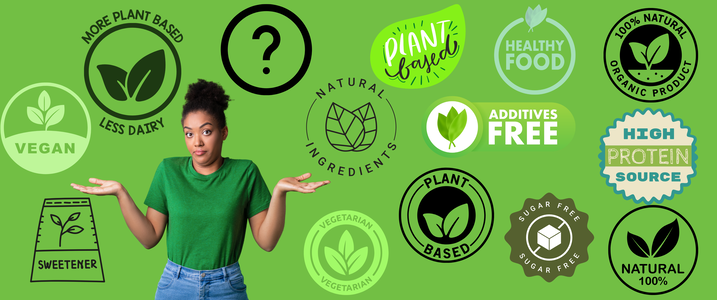Petition is successful with 1,421 signatures
To: Ministry for Primary Industries
Ban Misleading Labelling for Vegetarian and Vegan Products
It is now with the Primary Production Committee

The Vegan Society and the NZ Vegetarian Society are demanding additional legislation requiring factual and clear labelling on consumer products. The current ambiguity in product labelling creates significant consumer confusion and undermines trust. The lack of stringent regulations around the use of terms like "plant-based," "vegetarian," and "vegan" creates consumer confusion and dilutes the integrity of these labels. Clear, standardised, and enforceable labelling regulations are essential to protect consumers and support informed, ethical purchasing decisions.
We propose the following:
- Standardise "Plant-Based" Labelling: The term "plant-based" should be exclusively reserved for products that are 100% derived from plants. This term focuses solely on the ingredient source being 100% plant-derived. This clarity ensures that consumers are not misled by products containing animal-derived ingredients.
- Ban Misleading Terms: Eliminate vague and misleading terms such as "less dairy". These terms lack clear definitions and can deceive consumers about the actual content and health implications of the products.
- Clarify “Vegan” Labelling: When a product is labelled vegan, it should mean that no animal products or by-products were used at any stage of the manufacturing process. To ensure this, the following criteria must be met:
- Products must be free from animal-derived ingredients.
- Products must be GMO-free.
- No animal testing must be carried out or commissioned in the production of the product.
- Measures must be in place to prevent cross-contamination with animal products during production.
- Clarify "Vegetarian" Labelling: The term "vegetarian" should be reserved for products that contain no meat, poultry, fish, or seafood. Additionally, any use of animal by-products (such as gelatine, rennet, or certain colourants) should be clearly indicated. To ensure this, the following criteria must be met:
- Products must be free from ingredients resulting from animal slaughter.
- Only free-range eggs must be used.
- Products must be GMO-free.
- No animal testing must be carried out or commissioned in the production of the product.
- Measures must be in place to prevent cross-contamination with animal products during production.
Why is this important?
With the increase in the use of buzzwords on packaging, it is becoming unclear what is in our food unless you read through the entire list of ingredients. We want clear labelling and a ban on using vague and misleading terms. Consumers need to know what they are buying without reading everything on the packet, and this is particularly important for those with allergies.
The current Food Standards Code provides a foundation for food labelling requirements, but it lacks specific provisions for vegan and vegetarian labelling, leading to ambiguity and confusion for consumers[1]. Introducing new provisions that standardise and clarify these terms would address these shortcomings, aligning with the Code's objectives of consumer protection and fair-trade practices.
We envision a future where consumers can make informed, ethical, and confident choices about the products they purchase. By advocating for clear, standardised, and enforceable labelling regulations, we aim to eliminate ambiguity and ensure transparency in the labelling of vegetarian, and vegan products.
[1]The current Food Standards Code Legislation ANZ can be viewed here:
Further reading:
- https://www.foodstandards.govt.nz/consumer/labelling/Labelling-consumervalueissues
- There are a number of products currently on the NZ market that have misleading labels, the most recent of which was reported by The SpinOff here: https://thespinoff.co.nz/kai/22-03-2024/vegan-advocates-claim-dessert-branding-misleading-mpi-says-otherwise
- Animal genes are now being edited into soy beans. You can read more about that here: https://vegansociety.org.nz/animal-genes-in-soy-is-unacceptable/
- And also here: https://www.feedandgrain.com/grain-handling-processing/biotech-crops/news/15669206/moolec-science-receives-usda-approval-for-pig-protein-soybean
How it will be delivered
It will be emailed to the Ministry for Primary Industries

